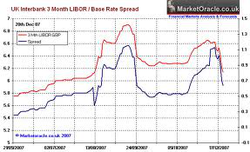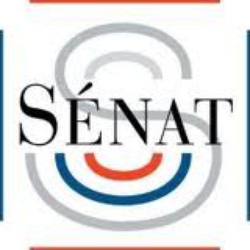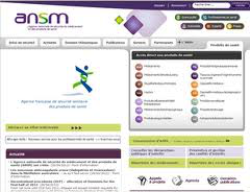Mise à jour : 1 août 2012 (Rédaction initiale : 7 juillet 2012 )
Sur le vif

Mise à jour : 9 juillet 2012 (Rédaction initiale : 3 juillet 2012 )
Sur le vif

Mise à jour : 23 mai 2012 (Rédaction initiale : 9 mai 2012 )
Sur le vif

Mise à jour : 16 janvier 2012 (Rédaction initiale : 6 octobre 2011 )
Translated Summaries

Mise à jour : 19 décembre 2011 (Rédaction initiale : 5 juillet 2011 )
Analyses Sectorielles

Translated Summaries
ENGLISH
A recommendation concerning professional “good practices” in pharmaceutical treatments issued by the Haute Autorité de la Santé (French Healthcare Regulator) was attacked before the Council of State by an association. It was invalidated by Council of State decision on April 27, 2011 for violation of the principal of impartiality, because members of the regulator’s working group had interests in the pharmaceutical industry.
ITALIAN
Relazione di settore (Salute): Una raccomandazione sulle “buone prassi” pubblicata dall’Autorità di regolazione in material di salute è stata annullata a ragione della sua parzialità
Una raccomandazione relativa alle “buone prassi” nei trattamenti farmaceutici resa dalla Haute Autorité de la Santé (l’autorità francese di regolazione in materia di salute) era stata contestata da un’associazione dinanzi al Consiglio di Stato. Il 27 aprile 2011, il Consiglio di Stato ha annullato tale raccomandazione in quanto resa in violazione del principio d’imparzialità, diversi membri del gruppo di lavoro nominati dall’autorità di regolazione avevano interessi personali nell’industria farmaceutica.
SPANISH
Informe Temático (Salud): Una recomendación concerniendo las “buenas prácticas” publicada en por el regulador francés de la salud fue invalidada por razones de parcialidad.
Una recomendación concerniendo las “buenas prácticas” en tratamientos farmacéuticos publicada por la Haute Autorité de la Santé (el Regulador francés de la salud) fue atacada frente al Consejo de Estado por una asociación. Fue invalidada por el Consejo de Estado en una decisión del 27 de abril del 2011 por violación del principio de la imparcialidad, porque miembros del grupo de trabajo del regulador tenían ciertos intereses en la industria farmacéutica.
PORTUGUESE
Informe setorial (Saúde): Uma recomendação relativa a “boas práticas” publicada pelo regulador francês de saúde foi anulada por motivos de parcialidade.
Uma recomendação relativa a “boas práticas” em tratamentos farmacêuticos adotada pela Haute Autorité de la Santé (Regulador francês de saúde) foi atacada perante o Conselho de Estado por uma associação. Ela foi invalidada pela decisão do Conselho de Estado de 27 de abril de 2011 por violação do princípio da imparcialidade, pois alguns membros do grupo de trabalho do regulador tinham interesses na indústria farmacêutica.
Revogação – Ônus da prova – Conflito de interesses – Deontologia – Ex post – Boas práticas – Guia – Hard Law – Haute Autorité de la Santé (Regulador Francês da Saúde) – Imparcialidade – Independência – Legislador – Responsabilidade – Programa de tratamento médico – Obrigação – Parcialidade – Indústria farmacêutica – Recomendação – Ciência – Autoridade científica – Dados científicos – Grupo de trabalho.*
* Em The Journal of Regulation, estas palavras-chave são fornecidas pelo Editor e não pelo Autor.
.....................
Other translations forthcoming.
Mise à jour : 8 décembre 2011 (Rédaction initiale : 4 septembre 2011 )
Parutions : Neutrality in Systems of Economic Regulation

Translated Summaries
In The Journal of Regulation the summaries’ translation are done by the Editors and not by the authors
ENGLISH
Article: What does it mean to be neutral ? Socrates in the land of regulators
Should regulatory agencies, as we define them in today’s economic and cultural world, be obligated to be neutral in accomplishing their regulatory activities? What would the meaning of such an obligation be?
ITALIAN
Articolo: Cosa vuol dire essere neutrale? Socrate nella terra dei regolatori
Le autorità di regolazione, come sono denominate oggigiorno nel mondo economico e culturale, dovrebbero essere obbligate ad essere neutrali quando compiono le loro attività di regolazione? Quale sarebbe il significato di un tale obbligo?
.....................
Other translations forthcoming.
Mise à jour : 19 octobre 2011 (Rédaction initiale : 14 octobre 2011 )
Contributions

Mise à jour : 26 septembre 2011 (Rédaction initiale : 4 juillet 2011 )
Analyses Bibliographiques : Symposiums

ENGLISH
On May 20, 2011, a colloquium was held in Paris on the question of How should the Audit be regulated?, organized by The Journal of Regulation, l’Ecole de droit de la Sorbonne, and KPMG France, one of the Journal’s privileged partners. The participants were Jean-Luc Decornoy, Nathalie de Basaldua, Alain Couret, Marie-Anne Frison-Roche, Christine Thin, Stephen Haddrill, Claude Cazes, Etienne Wasmer, and Mara Cameran. The reflections and discussions bore upon the European Commission’s Green Paper on Audit Policy. The colloquium’s ambition was to discuss the methodological links that must guide the future of the Audit, both in relation to financial regulation and competition, and also to analyze what the inspirations for audit reform should be, especially by using the available economic studies. Each participant agreed that the most important goal was to ensure that the audit is of very high quality, and everything ought to converge towards this goal.
ITALIAN
Relazione bibliografica (Convegno): Vers quelle régulation de l’audit faut-il aller? (Come dovrebbe essere regolato l’audit ?)
Il 20 maggio 2011, si è tenuto a Parigi un convegno sulla questione di come dovrebbe essere regolato l’audit, organizzato da The Journal of Regulation, da l’Ecole de droit de la Sorbonne e KPMG France, partner privilegiato della rivista. I partecipanti erano Jean-Luc Decornoy, Nathalie de Basaldua, Alain Couret, Marie-Anne Frison-Roche, Christine Thin, Stephen Haddrill, Claude Cazes, Etienne Wasmer e Mara Cameran. Le riflessioni e le discussioni si sono concentrate sul Libro Verde della Commissione europea sulla politica in materia di audit. L’ambizione del convegno era di studiare i nessi metodologici che devono costituire le linee guida dell’audit, tenendo conto della regolazione finanziare e della libera concorrenza. Il convegno mirava inoltre ad analizzare le possibili piste di una riforma dell’audit, sulla base anche di studi di tipo economico. Ogni partecipante ha sottolineato che lo scopo più importante era quello di assicurare un’attività di audit di grande qualità, e che tutti gli sforzi dovrebbero convergere verso tale scopo.
SPANISH
Informe bibliográfico (Simposio): ¿En qué dirección debe dirigirse la regulación?
El 20 de mayo del 2011 se llevó a cabo un coloquio en París sobre la cuestión de “Cómo debe regularse la auditoría?” organizado por The Journal of Regulation, l’école de droit de la Sorbonne y el KPMG France, uno de los asociados principales de esta publicación. Los participantes incluyen Jean-Luc Decornoy, Nathalie de Basaldua, Alain Couret, Marie-Anne Frison-Roche, Christine Thin, Stephen Haddrill, Claude Cazes, Etienne Wasmer, and Mara Cameran. Las reflecciones y discusiones se centraron sobre el Papel Verde de la Comisión Europea sobre la política auditiva. La ambición de este coloquio era de discutir las conexiones metodológicas que deben guiar el futuro de la Auditoría, tanto en relación con la regulación de finanzas y la competencia, y también de analizar cuáles deben de ser las inspiraciones para la reforma de la auditoría, especialmente al usar los estudios económicos disponibles. Cada participante concertó que el objetivo más importante era de asegurar que la auditoría sea de alta calidad, y que todo ha de converger hacia este objetivo.
PORTUGUESE
Informe bibliográfico (Symposium): vers quelle régulation de l’audit faut-il aller ? Como deveria a auditoria ser regulada?
Em 20 de maio de 2011, um colóquio foi realizado em Paris sobre a questão Como deveria a auditoria ser regulada?, organizado por The Journal of Regulation, l’Ecole de droit de la Sorbonne, e KPMG France, um dos principais parceiros deste periódico. Os participantes foram Jean-Luc Decornoy, Nathalie de Basaldua, Alain Couret, Marie-Anne Frison-Roche, Christine Thin, Stephen Haddrill, Claude Cazes, Etienne Wasmer, e Mara Cameran. As reflexões e discussões surgiram a partir do Informe Verde sobre Política de Auditoria da Comissão Europeia. O propósito do colóquio foi discutir as ligações metodológicas que devem guiar o futuro da auditoria, ambos em relação com regulação financeira e concorrência, e também analizar quais deveriam ser as inspirações para a reforma da auditoria, especialmente usando os estudos econômicos disponíveis. Todos os participantes concordaram que o objetivo mais importante seria assegurar que a auditoria é de alta qualidade, e que tudo deve convergir para este objetivo.
Padrão contábil – Alternativa financeira – Auditoria – Mercado de auditoria – Falência – Big Four – Certificação – Colóquio – Concentração – Confiança – Conflito de interesses – Cooperação – Custo – Agência de notação – Operador crucial – Definição – Deontologia – Mercado desregulado – Eficiência – Europa – Mercado europeu de auditoria – Comissão Europeia – Especulação – Crise financeira – Mercado financeiro – Futuro – Mercado global – Objetivo – Informe Verde sobre auditoria – Incentivo – Independência – Informação – Informação assimétrica – Fórum de auditoria internacional – Itália – Auditoria conjunta – Responsabilidade – Gerente – Votação obrigatória – Mercado – Expectativas de mercado – Micro economia – Acaso moral – Opacidade – Opinião – Perímetro – Preço – Lucro – Bem público – Interesse público – Serviço público – Qualidade – Economia real – Informação do risco – Ceticismo – Responsabilidade social – Risco sistêmico – Raciocínio teleológico – Trust – Reino Unido – Estados Unidos da América.*
* Em The Journal of Regulation, estas palavras-chave são fornecidas pelo Editor e não pelo Autor.
Other translations forthcoming.
Mise à jour : 31 août 2011 (Rédaction initiale : 4 juillet 2011 )
Contributions

Mise à jour : 31 août 2011 (Rédaction initiale : 8 juillet 2011 )
Contributions

Mise à jour : 31 août 2011 (Rédaction initiale : 9 juin 2011 )
Contributions

Mise à jour : 16 juin 2011 (Rédaction initiale : 27 mai 2011 )
Parutions : I. Articles Isolés
ENGLISH
Competition is the principle element of markets, in the princely sense of the term.The relationships that regulation maintains with competition are ambiguous. It is important to eliminate this ambiguity in order to reveal the ab initio opposition between regulation and competition, to shed light upon the dialectics between both of them. Indeed, regulation may aim at building competition, and is thereby presented as a tool that will cease being used when the competitive market functions effectively.
Administration - Autorité de Régulation des Communications électroniques et des Postes - Competition - Competition Authority - Conflict of intersts - Consumer - Contract - Equilibrium - European Commission - Ex ante / Ex post - Government - Hayek - Horyzontal regulation - Information asymmetry - Liberalisation - Market failure - Natural economic monopoly - Online gambling - Political mandate - Postal services - Power - Principle - Real economy - "Réglementation" - Regulator - Regulatory Authority - Self regulation - symmetrical regulation - Telecommunication - Tool - Watchdog *
* In The Journal of Regulation, these keywords are done by the Editor and not by the Author.
PORTUGUESE
Artigo: Regulação versus Concorrência
Concorrência é o principal elemento dos mercados, no mais genuíno sentido da palavra. As relações que regulação mantém com a concorrência são ambíguas. É importante eliminar essa ambiguidade de modo a relativizar a oposição ab initio entre regulação e concorrência, para trazer luz para a dialética entre elas. Com efeito, regulação pode tender a construir a concorrência, e é então apresentada como uma ferramenta que deixará de ser usada quando o mercado competitivo passar a funcionar realmente.
Administração – Autorité de Régulation des Communications électroniques et des Postes – Concorrência – Autoridade de concorrência – Conflito de interesse – Consumidor – Contrato – Equilíbrio – Comissão Europeia – Ex ante / Ex post – Governo – Hayek – Regulação horizontal – Informação assimétrica – Liberalização – Falha de mercado – Monopólio econômico natural – Jogo em linha – Mandato político – Serviços postais – Poder – Princípio – Economia real – Regulamentação – Regulador – Autoridade de regulação – Auto-regulação – Regulação simétrica – Telecomunicações – Ferramenta – Observador*
* No Journal of Regulation, as palavras-chave são fornecidas pelo Diretor, e não pelo Autor.
ITALIAN
Articolo: Regolazione vs. Concorrenza
La concorrenza è il principio fondamentale dei mercati, nel senso stretto del termine. Le relazioni tra regolazione e concorrenza sono ambigue. Per rivelare il contrasto tra regolazione e concorrenza è importante cancellare questa ambiguità e chiarire la dinamica di questi due concetti. In effetti, la regolazione punta a sviluppare la concorrenza ed è spesso considerata uno strumento che non avrà più ragion d’essere una volta che il mercato funzionerà in libera concorrenza.
Amministrazione - Asimmetria dell’informazione - Autoregolazione - Autorità di regolazione - Autorité de Régulation des Communications électroniques et des Postes - Autorità garante della concorrenza - Commissione Europea - Concorrenza - Conflitto di interessi - Contratto - Consumatore - Economia reale - Equilibrio - Ex ante / Ex post - Governo - Hayek - Liberalizzazione - Mancato Funzionamento del mercato - Monopolio economico naturale - Mandato politico - Potere - Principio - "Regolamentazione" - Regolatore - Regolazione orizzontale - Regolazione simmetrica - Servizi postali - Scommesse online - Strumento - Telecomunicazioni - Vigilanza *
* In The Journal of Regulation, le parole chiave sono responsabilità dell’Editore e non dall’Autore.
SPANISH
Artículo: Regulación versus la competencia
La competencia es el elemento principal de los mercados, en precisamente el sentido de este término. Es importante eliminar esta ambigüedad para poder revelar la posición ab initio entre la regulación y la competencia, para poder traer a luz las dialécticas entre las dos. Así tanto, la regulación puede intentar construir la competencia, y es, por consiguiente, un instrumento que cesará de ser utilizado cuando el mercado competitivo funcione de manera eficaz.
Other translations forthcoming.
